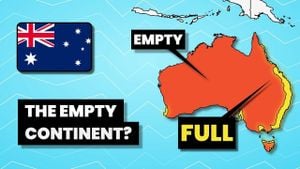Kaja Kallas, the European Union’s High Representative for Foreign Affairs and Security Policy, expressed grave concerns about the international community's dealings with Russia, emphasizing the need for firm consequences against its aggression. Speaking during the podcast "Szczyt Europy," Kallas stated, "If Russia does not face any consequences for its aggression, we will find ourselves back in a world where force prevails." Her comments come amid heightened tensions following U.S.-Russia talks held recently in Riyadh.
On February 18, Kallas underscored her frustrations with the American-led negotiations, which excluded Ukrainian representatives. "I would not call Putin because he just lies," she asserted, indicating her disbelief in the Russian president's reliability and his commitment to any agreements made. This sentiment reflects her broader assertion about the inherent risks of engaging with Russia, especially when peace discussions sideline Ukraine, the nation directly affected by the invasion.
Kallas warned, "Russia will try to divide us. Let's not walk unto their traps," signaling her commitment to preventing discord among Western nations. This remark came on the heels of the U.S. State Department's announcement following the four-hour talks between U.S. officials, led by Secretary of State Marco Rubio, and Russian representatives, including Foreign Minister Sergey Lavrov.
During her dialogue about the negotiations, Kallas cautioned against conceding to all of Russia's demands, stating, "If Russia gets everything it wants, I don't think it would be good negotiations for the other side." She stressed the importance of including both European nations and Ukraine to form any lasting agreements, asserting, "Any bad agreement will just lead to more wars." This perspective echoes historical precedence where smaller countries have suffered due to larger powers negotiating over their heads.
Her remarks reflect the growing concern within Europe about the ramifications of U.S.-Russia engagements without adequate representation from Ukraine. Kallas articulated this fear, noting, "You cannot reach any feasible agreement without the perspective of the affected parties." Her warnings serve as clarion calls for unity within the EU and NATO partners amid attempts by Russia to sow divisions.
Despite acknowledging the challenges of facing Lavrov at the upcoming G20 summit, where both officials are expected to be present, Kallas remains steadfast. "It’s hard for me to be in the same room as him, but Russia is part of the G20," she noted. Kallas plans to use her platform at the summit to tackle the pressing issues related directly to Ukraine and European security, emphasizing the larger stakes involved for the global community.
Essentially, Kallas's insights during the podcast and subsequent interviews reflect her commitment to ensuring accountable negotiations with Russia. She highlighted the necessity for sanctions to remain firmly enforced against Russia, rejecting calls to ease these measures, as demanded by certain factions within the Kremlin. Her position raises concerns about the stability of future negotiations, particularly if Russian aggression is met with lenience.
Leading up to the G20 meeting, Kallas's reflection on the situation encapsulates her fears and hopes for the future of Eastern Europe. She stressed, "If Russia does not face any consequences for its aggression, then the global order as we know it is at stake." This growing urgency for decisive action demonstrates Kallas's role as not only a diplomat but also as one of the primary advocates for standing firm against Putin's regime.
Commentators and analysts are watching closely how these dynamics will play out on the international stage and whether Kallas’s bold gestures will resonate with fellow EU leaders. The remarks she made are proof of the prevailing winds of resistance within European politics toward naively trusting agreements made without thorough vetting from all impacted parties. It is evident: Kallas knows well the consequences of missteps on this global stage and seems determined to steer Europe clear of Russia’s coercive tactics.
With the shadow of the Ukraine conflict looming, Kaja Kallas’s warning serves as timely advice for both the EU and the United States. It is clear her leadership will be pivotal as the West navigates the treachery posed by Russian diplomacy and its attempts to regain ground through manipulation, all the whilst striving for the safety and stability of Europe.



